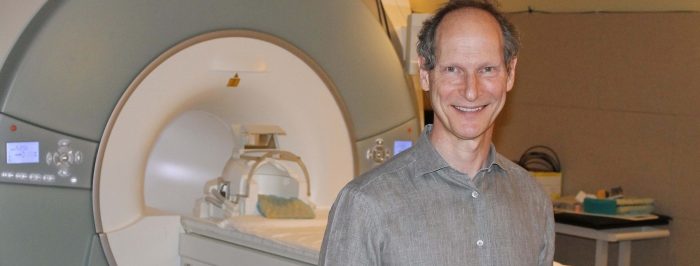The Neuro’s research is part of a major international effort
Researchers at The Neuro are at the centre of a project by an international alliance to develop biomarkers that can accurately detect and predict the evolution of progressive multiple sclerosis. Such biomarkers could be invaluable in helping to develop new MS drugs.
“The problem for developing drugs for progressive MS is that there’s no good outcome marker other than the actual progression, which happens very slowly. In a two-year drug trial, maybe less than one in five patients might show progression,” notes Dr. Doug Arnold, a neurologist and researcher who was part of the international effort to develop ocrelizumab, a breakthrough drug prescribed since last year that is the only approved medication in Canada that stops MS progression. “We’re looking for a biomarker that could detect some response within a year that would correlate eventually with a clinical response.”
Although magnetic resonance (MR) scans can gather some data about what is happening to the brain of MS patients, the standard measurements that researchers use to interpret the data are not adequate for predicting progression. To get a more comprehensive analysis, Dr. Arnold and his colleagues are turning to new techniques.
“The idea is to use artificial intelligence (AI) to identify whatever is in the MR image that might underlie the disease progression, even if we don’t know how to recognize it ourselves. You can compare it to AI deep-learning techniques used for facial recognition. Some of the images’ features are not what my colleagues and I would ever look at or notice. But the machine algorithms pick them out as discriminatory features. The machine will flag features that we don’t know how to recognize or look at but are there.”
AI intelligence is only as effective as the amount of data that is made available to it to learn on. For the biomarker project, which began in 2017 and is about halfway completed, it has been necessary to collect tens of thousands of MR scans and to put them into one data base that could be used to train the AI learning algorithms. One problem that the project faces is how to put data that arrive in different formats into a standard format.
Tal Arbel and her colleagues in McGill University’s computer engineering department are working on novel AI methods to analyze the data for the specific purpose of creating MS biomarkers. Once the images are gathered, Louis Collins of The Neuro’s McConnell Brain Imaging Centre will harmonize the data to allow an analysis of all the scans in a consistent way.
The Neuro’s biomarker research is part of a project funded by the International Progressive MS Alliance (IPMSA), a collaborative effort of national MS societies, research centres and drug companies around the world.
“No individual lab or even drug company has the thousands of scans needed for this project,” notes Dr. Arnold. “Everybody recognized that they couldn’t do it alone so in the interests of MS patients, they decided to collaborate.”
Drug companies have proprietary interests and various data transfer agreements, which must be legally respected. For this reason, not all the data from the project are freely available even though The Neuro has declared itself an open science institute that seeks to share data as freely as possible. A restricted number of qualified investigators with projects directly related to the goals of the IPMSA will be able to request access to the project data. To maintain strict patient privacy, all the data are coded to make them completely anonymous and untraceable to the patient subject.
“My hope is that at the end of the project, we will be able to make these data open,” says Dr. Arnold.
May 15, 2019

